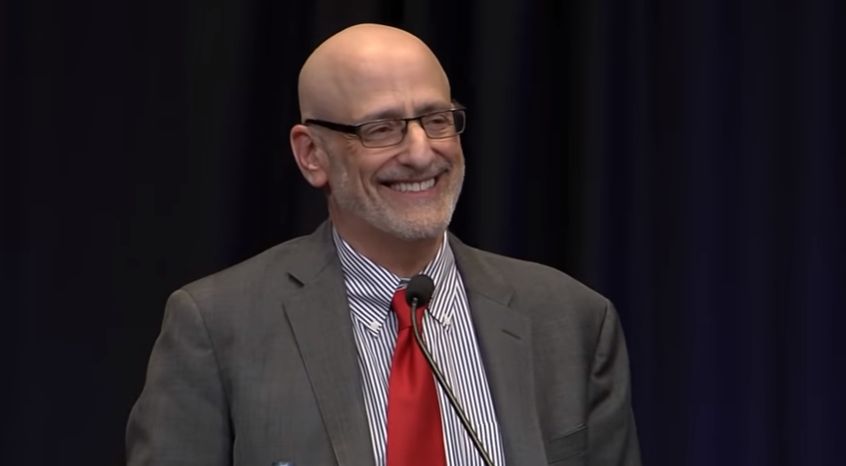 MOSCOW, Idaho — A college co-founded by Reformed theologian Douglas Wilson is being questioned after inviting Andrew Klavan, a crime/thriller novelist and screenwriter for the pro-life “Gosnell” movie, to speak to high school students as part of an event teaching youth how to “engage the culture” for Christ.
MOSCOW, Idaho — A college co-founded by Reformed theologian Douglas Wilson is being questioned after inviting Andrew Klavan, a crime/thriller novelist and screenwriter for the pro-life “Gosnell” movie, to speak to high school students as part of an event teaching youth how to “engage the culture” for Christ.
Although unrelated to his topic of discussion, the controversy surrounds Klavan’s defense of homosexuality, as he has stated that while marriage is between a husband and wife, he believes that “loving” and monogamous relationships outside of the Divine design don’t “offend God,” may not be sinful (more recently stating that “instinctively” he believes they are not) and that the Church should make allowance for same-sex “sexual companionship.”
The concerns do not involve any suggestion that New Saint Andrews College in Moscow, Idaho, which is hosting its annual “Called” conference July 15-20, would share Klavan’s views. The matter rather involves Klavan being presented as a Christian — being purportedly invited to share his testimony and talk about working in Hollywood from a Christian perspective, while also publicly posting beliefs that are significantly at odds with Scripture and could lead men to eternal damnation.
The Bible warns in 1 Corinthians 6:9-10 that those who engage in unrepentant homosexuality will not inherit the kingdom of God.
In a recent blog post following the controversy, which originated from an article published by the polemics site Pulpit & Pen, Wilson reiterated that he “selected Klavan’s testimony as [his] book of the month in 2017,” and still believes that it is “a great book” — even now being made aware of his views.
Wilson, an author and speaker, addressed the issue of homosexuality in his 2016 book “Same Sex Mirage,” writing that “[h]omosexual rights are about sexual liberty — but only superficially. Primarily, gay marriage is about the right to control.”
During an exclusive interview with Christian News Network, it was further learned that while Klavan believes that Jesus is the way to Heaven, he is open to the possibility that those outside of Christianity might still be saved as he does not know exactly “how” Christ might save someone.
He also affirmed that his usage of profanity, including in the 2018 film “Gosnell: The Trial of America’s Biggest Serial Killer” — which injects a number of curse words and one utterance of the Lord’s name in vain — is purposeful in order to show the world as it really is, not as it should be.
THE CONFERENCE
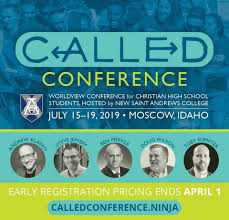 New Saint Andrews’ “Called” conference is stated to be an event “that will challenge Christian high school students to become the next generation of cultural leaders.” It is geared toward youth ages 15-19 and features a number of speakers, including President Ben Merkle and Wilson, the pastor of Christ Church of Moscow, along with two other pastors.
New Saint Andrews’ “Called” conference is stated to be an event “that will challenge Christian high school students to become the next generation of cultural leaders.” It is geared toward youth ages 15-19 and features a number of speakers, including President Ben Merkle and Wilson, the pastor of Christ Church of Moscow, along with two other pastors.
Last year’s event likewise featured a segment on “Film and Writing,” as Nate Wilson, Wilson’s son and a published fiction writer, spoke to teens. This year, Klavan was asked to share with attendees, mostly in light of his work on the “Gosnell” film.
As a best-selling author, Klavan’s crime and suspense novels include “Werewolf Cop,” “A Killer in the Wind,” “True Crime,” “Damnation Street” and “Empire of Lies.” He has been endorsed by fellow horror and fantasy novelist Stephen King, and is a two-time Edgar Award winner.
Klavan has also been involved in the scripting of a number of films and television dramas, such as “One Missed Call,” “Don’t Say a Word,” “Dark Hearts” and “NYC Underground.” His “Gosnell” film tells the true story of convicted Philadelphia abortionist Kermit Gosnell, who is serving life in prison after a police bust into his “House of Horrors” revealed that he had killed numerous babies — found in freezers and jars — by snipping their spines.
The movie, which was shown in theaters nationwide this past October and exposed the evils of the notorious abortionist, depicts detectives shocked by the horrifying discovery and chronicles the effort by prosecutors to put Gosnell behind bars.
Klavan — who hosts the politically conservative “Andrew Klavan Show” via Ben Shapiro’s The Daily Wire — told Christian News Network that he opposes abortion and believes that it is an abomination, although “good people” may obtain an abortion in being deceived. He said that he is hopeful that the matter will soon be returned to the states.
“The idea that this is not a human being with a right to life is absurd and completely inarguable,” he said.
Klavan advised during the interview — and also outlined on a his podcast this week — that New Saint Andrews College had invited him in to share about his conversion to Christianity as a former secular Jew, as well as to speak about “Christians working in Hollywood.”
“The reason we invited Klavan [is] we’re trying to focus on engaging the world with a Christian worldview,” college President Ben Merkle also explained.
However, he later stated that Klavan was brought in solely to address the topic of abortion in light of his work on the “Gosnell” film, remarking, “I appreciate the use of media to tackle what I think is one of the preeminent issues of our day.”
It is not clear whether New Saint Andrews narrowed the scope of Klavan’s talk to any degree after learning of his position on other issues, or whether Klavan still plans to share his testimony with the students as asked.
“The reason that we invited Klavan to speak at ‘Called’ was to hear him on the subject of abortion,” Merkle simply wrote in a letter to Pulpit & Pen after it published an article expressing concern about the selection. “He wrote the screenplay for the film ‘Gosnell’ and we wanted to hear from him about the challenge of engaging our culture through film on such a controversial subject.”
When asked if he considers Klavan to be a Christian, Merkle responded in the affirmative. However, when the subject was revisited, he simply stated, “I appreciate his work on ‘Gosnell’ and fighting abortion.”
JUDGE NOT?
As Klavan is a former secular Jew who works with an Orthodox Jew, Christian News asked if he believes all Jews and those from other religious backgrounds need to hear the gospel and come to Christ. Klavan said that he believes Jesus is the way as outlined in John 14:6, but is “not sure what the salvation process is from God’s perspective” and feels that men should “judge not” another man’s relationship with God.
“I [concur] with C.S. Lewis who said we know that you can only be saved through Jesus Christ, but we don’t know how Jesus Christ can save,” he said. “This is a very important fact to me. I get exactly zero votes on who’s saved and who gets into Heaven. And so, I feel that is not my job. My job is to love God and to love my neighbor. … My job is not to say, ‘You get in. You don’t get in.'”
Klavan, who was baptized as Episcopalian but now attends a Presbyterian church, opined that a person doesn’t know “what another man’s relationship to God is,” and that “God has a way of saving people that goes beyond anything I can imagine.”
“[W]e don’t know what it means to get to Heaven through Jesus,” he continued. “I believe [the Bible] entirely, but I’m not sure exactly what it looks like from [God’s] perspective. And I’m completely willing to surrender to His perspective and let things be a mystery that I simply have no vote on at all.”
Klavan said that he has joked with his friend, Ben Shapiro, that he is going to “smuggle him into Heaven in a suitcase.”
“I wish that Ben could see what I see and experience the joy in Christ that I experience, … but I’m not going to sit there and tell him what God thinks of him,” he outlined. “I think that is exactly what the command to ‘judge not lest ye be judged’ means. It means you do not know what another man’s relationship to God is.”
“And I feel that way about Ben,” Klavan continued. “He’s a good man; he does good work. I would love for him to find the joy I have, but I hope that God is with him and I believe that God has a way of saving people that goes beyond anything I can imagine.”
When asked if he believes men must be born again, he said that he does, but “to me, it’s really important to have the humility say, ‘Where I have no voice, I have no vote.’ I surrender the entire process to God and my only job is to love my neighbor who is a Jew and love my neighbor who is not a Jew, and in doing so, feel that I’m loving the image of God.”
“The judgment, the salvation, is God’s job and I leave it to Him,” Klavan said.
Merkle told Christian News that he disagrees with Klavan’s open view of salvation, and would not put him up as a Bible teacher in front of the students. However, he said that the remarks do not mean that Klavan is not saved himself.
“I’m glad that all of us are saved by Christ and not by our understanding of Christ,” he stated. When asked if he means that one does not have to understand the gospel to be saved by the gospel, Merkle affirmed, “If the entrance to Heaven is a theology exam, we’re all toast.”
KLAVAN ON HOMOSEXUALITY
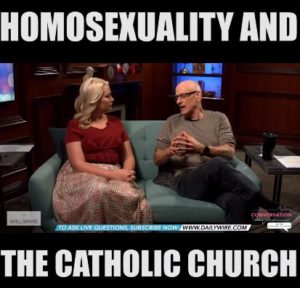
Christian News Network also asked Klavan about a video he posted to social media last year, in which he outlined that he believes God created sex for marriage between a man and a woman, but added that just because something is done outside of the created purpose, a deviation could still be swallowed up by a “greater good” as per Aristotelian philosophy.
“It seems to me that even though the center of human life is a man and a woman coming together to create children, there is room for life to exist outside of the center,” he said in the clip.
“And it seems that if you get rid of all the other sins that destroy people: the promiscuity, the infidelity, the hurtfulness, use of force and betrayal — you get rid of all of that and you’re just left with two people of the same sex loving each other for life, it seems to me that their sexual urge could be subsumed into the greater good, even though you’re not using it for procreation, it can be subsumed into the greater good of your affection for one another.”
Klavan also wrote in a 2010 article in Ricochet, in which he commented on a Jewish rabbi’s op-ed on homosexuality, “I don’t agree that homosexuality offends God (if it did, He wouldn’t let them write all the good show tunes) … I was also taken aback by the idea … that homosexuality is ‘the greatest threat to marriage and the family.’ Comes as a surprise to me. Frankly, the greatest threat to my shockingly blissful marriage has always been heterosexuality — namely mine and its indiscriminate attractions.”
“I’m kind of libertarian about this. I don’t see why it’s any of my business. I don’t see who it hurts. I don’t see it’s necessarily harmful to society,” Klavan told Christian News Network this week. “And I don’t entirely understand … why this has become the central question of [the Church]. … This is a thing that Jesus never mentioned. That doesn’t necessary mean that He believed in it; it just means that the word of God, in the time He had on earth, didn’t bring this up.”
When Christian News noted that Jesus said “a man shall leave his father and mother and cleave to his wife,” Klavan agreed that Christ placed male-female marriage at the center, but said that he is unsure whether anything outside of that is sinful or just “off-center.”
“I don’t know if that separates you from God,” he acknowledged. Kavlan said that a homosexual who “feels degraded by his actions should probably taken that to God and straighten that out,” but if a person finds that the only way they can experience love is with the same sex, “then maybe that’s not a sin. I mean, maybe that’s something where God says, ‘You’ve got a bad break and at least you’re not being promiscuous and you’re not doing these other things.'”
He stated that he finds its prejudicial for churches to have support groups for the divorced but to expel those engaged in homosexuality. Klavan said that he doesn’t believe the Church should make same-sex “marriage” a sacrament, but hopes — as he remarked in last year’s video clip, that churches will “start letting people have the consolation of sexual companionship if they can’t have it with the opposite sex.”
“I am not convinced that gay marriage is a sacrament, but I do believe in a world in which you can get a no-fault divorce, or in which you can have a relationship with a woman and it’s not marriage [and] you can sue each other for child support if you break up, I believe that gay relationships should be covered under those laws,” he stated.
Klavan wanted to be clear, however, that homosexuality is not one of his main talking points, but will provide his views when asked. He also noted that he does draw the line with some aspects, advising that he left an Episcopalian church because it “interweaved theology with left-wing politics until the two were indistinguishable” and hoisted pride flags outside of the building (he opposes pride). Klavan also does not support the work of homosexual activists or the increasing “incursion into schools.”
In response to the controversy and his interview with Christian News, Klavan provided further commentary on his podcast this week, noting that Romans 1 is often cited in regard to homosexuality and that he doesn’t believe the writings of the Apostle Paul are inerrant as he is “not Jesus.” He pointed to the Scriptures about women not being permitted to teach and men having long hair, remarking, “I don’t believe those things.”
Klavan said that he doesn’t think Paul’s writings are meant to “lock us into First Century morality,” including surrounding how to interpret his lamentation of men “burning with lust toward one another” and “leaving the natural use of the woman.”
“My instinct is that, no, homosexuality is not a sin per se. My instinct is that a man in a loving relationship with another man — a stable, loving, non-promiscuous relationship with another man — will be able to stand before the throne of God,” he stated. “[But] don’t take my word for it because I don’t get a vote.”
Listen to Klavan’s remarks here beginning at 41:00.
Merkle told Christian News Network that he believes Klavan’s views on homosexuality are “confused and extremely wrong-headed,” and that a panel discussion during the event — in light of the revelation — will notate the difference in beliefs between New Saint Andrews and Klavan. He said that he believes it is important for Christians to preach about the sin of homosexuality and warn them of Hell.
He noted, however, that he similarly has both agreement and disagreement with the writings of — for example — C.S. Lewis and G.K. Chesterton, and said of Klavan, “I don’t believe I’m given authority in Scripture to say that because somebody is confused on that, that means that they’re not going to Heaven. … I would be slow to anathematize someone like that.”
Merkle said that if a person were personally unrepentantly engaged in homosexuality, he would not invite them as a speaker, but it is “slightly different” for Klavan, because “he’s one who is tolerating it in his beliefs” and “our intention is to tell him, ‘We believe you’re wrong on that’ and to make that clear.”
“If Mr. Klavan was going to talk about a positive view of homosexuality without being opposed, then that would be a problem,” he outlined. “I think we need to show our kids [attending the event] how to walk through these conversations and I think that to fail to do so is very naive.”
PROFANITY, SEX AND VIOLENCE IN MEDIA
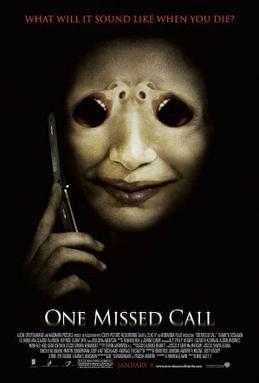
Christian News Network asked Klavan if he has a stance on using profanity in film, noting that there were a number of instance of foul language in the Gosnell movie. He said that he includes profanity because that is how the person would customarily speak and he tries to depict situations as close to reality as possible.
“I believe that an artist’s job is to show the world as it really is, not as it’s supposed to be. I believe God is the God of the real world; He’s not the God of Candyland,” he stated. “Bad guys and cops talk in a certain way. I think that only by representing a the real world can you represent the real God.”
“I know that a lot of people disagree with this; I get letters about it every day. I write crime novels. I write books about very bad guys. They talk the way they talk, and I represent them the way they talk,” Klavan continued. “I try not to go out of my way to have people curse, but when I know that’s what someone would say, when it sounds ridiculous any other way, that’s what I do.”
Klavan said that with his most recent book, “Another Kingdom,” he realized that Christians might enjoy the story, and so he removed the profanity. However, in reading the text minus the profanity, he felt that it was “absurd” and “did not sound like real life at all.”
“And so, I put the cursing back in,” Klavan advised.
He further explained that one of his favorite TV series is “The Sopranos” because although it is full of profanity, sex and violence, it shows the consequences of the living a mob lifestyle. He said that such is his view on books and film — pointing to philosopher Arthur Schopenhauer — that creating movies with all optimism is unhelpful and “nothing sells God less than happy talk fantasies.”
“‘[T]he Sopranos’ is full of nudity, it’s full of cursing, it’s full of violence, and I feel it’s truly one of the moral works of art that came of those years. It’s a vision of God’s moral order being violated by the gangsters in front of you,” Klavan stated.
“I love the Sopranos because … it shows you not just just violence, but it shows you the appeal of violence, it shows you the joy of cruelty. It also shows you that it is happening in a moral context and there is a price to pay at the deepest level,” he continued. “And that to me is what art is about. Art is not supposed to be just Candyland happy talk that makes you feel good about the fact that you went to church on Sunday. That, to me, is absurd. It’s the deepest, most horrific facts of life that lead you to God.”
He also pointed to the late movie critic Pauline Kael, who, in being asked about her view on sex and violence in the media, replied, “That’s what stories are.” According to an article by The Economist, Kael “loved the sex, the violence and the exploding heads she saw in the work of Francis Ford Coppola, Brian De Palma, Martin Scorsese and Robert Altman.”
Klavan noted, however, that he does draw the line at pornographic material, advising that he has rejected work that would be classified as “torture porn,” as well as when the filmmaker seems to be “on the side of the evildoer.”
Many of Klavan’s published works are action-packed crime novels or thrillers involving frightful plots of death and survival. Some of his more recent writings add faith to the mix as he says that he now feels compelled to include “some aspect of the supernatural” in his work, as opposed to the days when his characters existed in a “relativistic universe.”
Klavan’s book “Empire of Lies” surrounds the fictional story of a man of “deep religious faith” who receives a phone call from a woman with whom he “once shared a life of violence and desire” as she advises that her daughter is missing and needs his help. He soon finds himself “entangled in a murderous conspiracy” and “hunted by terrorists and the police” — with mere hours to “unravel an ex-lover’s lies” and save the country from attack.
“Hostage Run,” which is a part of a trilogy of stories, centers on a virtual reality world where a woman has been kidnapped by terrorists who also threaten to kill her should her gamer ex-boyfriend return to MindWar realm. Her former lover finds himself in a race “against time inside a nightmare video game where a fate worse than death may be waiting for him,” and has to lean on his faith to survive.
The 2008 horror movie “One Missed Call,” co-written by Klavan, is a story about people who receive phone calls from their future selves as they are being murdered, and the 1987 R-rated film “The White of the Eye,” which was based on a book written by Klavan, is stated to be about a “twisted killer [who] is on the loose” and who “tortures and dissects his beautiful victims as part of a primitive Indian ritual.”
When asked about Philippians 4:8 and its exhortation to fill one’s mind with the pure and virtuous, Klavan said that he is familiar with the passage, but doesn’t think it changes the role of a storyteller.
“I do not think that Philippians cancels out the responsibility of an artist,” he opined. “Art is delightful, but it sometimes delights through horror. It sometimes delights through fear. And it sometimes delights in through just a raw telling of the truth. Art is not life. If I went out and killed people and said, ‘Well, that’s just the way it is,’ that would be very different, but when I tell stories about things that really happen, I feel I’m involved in a noble endeavor.”
Christian News also cited Psalm 101:3 and its notation about putting “no wicked thing before my eyes.” Klavan said that he doesn’t think the passage is applicable because “art that shows wicked things is not wicked” but “realistic.”

Rich Christiano of Five & Two Pictures, known for films such as “The Secrets of Jonathan Sperry,” “Time Changer,” “A Matter of Faith,” and his latest production “Play the Flute,” told Christian News Network that he views filmmaking differently.
“[Just because] it really happens doesn’t mean you’ve got to depict it. … People justify a lot of things for the sake of art. Our number one rule in filmmaking is we must please the Lord with the content and what we’re doing, and go from there,” he said. “If God is not pleased, it’s a zero. The most famous Hollywood movies that have grossed tons of money are probably zeros in God’s eyes because they don’t please Him. You can’t use them to reach people.”
“I’m certainly not a fan or a promoter of making worldly films with language and nudity and all this stuff to reach people for Christ,” Christiano stated. “To me, if first wouldn’t please the Lord, and so He’s not going to use it. … People say that there’s a lot of things in the Bible — murder and all this stuff. Yeah, but there aren’t any pictures. And you don’t have to go that far. … I don’t think we have to be worldly to reach worldly people.”
Christiano recalled when he visited Chicago with actor Gavin MacLeod to encourage churches to bring “The Secrets of Jonathan Sperry” to their local theater. At the end of the film, during the Q & A session, Christiano explained why he felt that the movie — though innocent and sweet in nature — would be ideal to show gang members.
“I said, ‘What do you need the Holy Spirit to do? Make films that show rape, violence, guns, knives — all sorts of sin — to reach people? That’s what the Holy Spirit needs to do? You get the gang members to watch this film and they’re all going to identify with Nick, the bully,'” he stated. “And I want to show these gang members [that] there’s a lifestyle 180 degrees from what you’re used to, and that’s what it is going to take for you to come to Christ.”
“If you’ve got a loved one that you really care about that you’re trying to reach for the Lord, … what movie are you going to give them?” Christiano asked. “A crossover film that’s got violence and profanity in it to try to reach them, or are you going to give them [films like] ‘Time Changer?'”
He said that secular entertainment, as opposed to godly, edifying content, “steals the hearts of the people,” and is very often the reason why youth abandon the things of God and are drawn to follow the world.
“People don’t realize [that] watching [movies and shows] they know they shouldn’t watch does affect them,” he said. “It steals your heart. It steals your commitment [and] just pulls you away from the things of the Lord. The Bible says to meditate in the law day and night; there’s got to be a reason for that.”
THE LINE
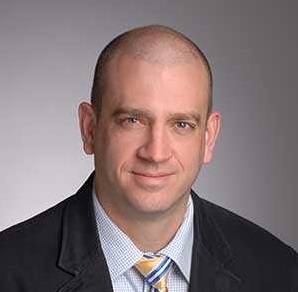
Merkle said that he’s not sure on where to draw the line when it comes to selecting speakers for an event. He remarked that it is a difficult matter and a fine line to walk.
“It is a really difficult thing to figure out how you handle [the] lines. … We’re stuck in this position of working with people that we agree with deeply and appreciate their work on one hand and disagree with them on the other,” he stated. “And so, the question is, how do you faithfully handle that moment?”
Merkle outlined, however, that he sees a difference between a “co-belligerent and an ally.”
“In World War II, we were co-belligerents with Russia; we were allies with England. I think you can make common cause with somebody that you disagree with deeply. But I think you want to make sure that you’re constantly aware of where the disagreement is,” he said.
“I don’t think it’s good to kind of sweep the disagreement under the carpet. I think that’s just another form of compromise. But I also think it’s unhealthy to not join up when you’re all fighting the same battle,” Merkle opined. “It’s definitely a fine line to walk and I have no doubt that we will misstep here or there …”
Wilson released a brief blog post about the matter to notate that Klavan will participate in a “disputatio on the biblical ethic of sexuality, in which a representative of our college will show how abortion is a cornerstone of the entire sexual revolution, and that all these issues are actually just one issue.”
However, he also noted that in 2017, he endorsed Klavan’s book on his personal testimony, “The Great Good Thing: A Secular Jew Comes to Faith in Christ.” Wilson stood by his recommendation, stating, “It is a great book.”
Klavan likewise noted on his Tuesday broadcast that the college said it doesn’t like canceling invitees, so they asked if they could rather politely debate him on the subject.
“They wrote to me and said, ‘We disagree with you, but we really dislike this virtue signaling cancellation of speakers. So would you come and be on a panel where we’ll discuss it with you?’ And I said, ‘Of course I would.”
“We are going to hear from him on abortion,” Merkel said, “but we also wanted to model for the students an disagreement on homosexuality, and that’s the purpose of the panel discussion — to actually register the disagreement and show the students what we think.”
Become a Christian News Network Supporter...


